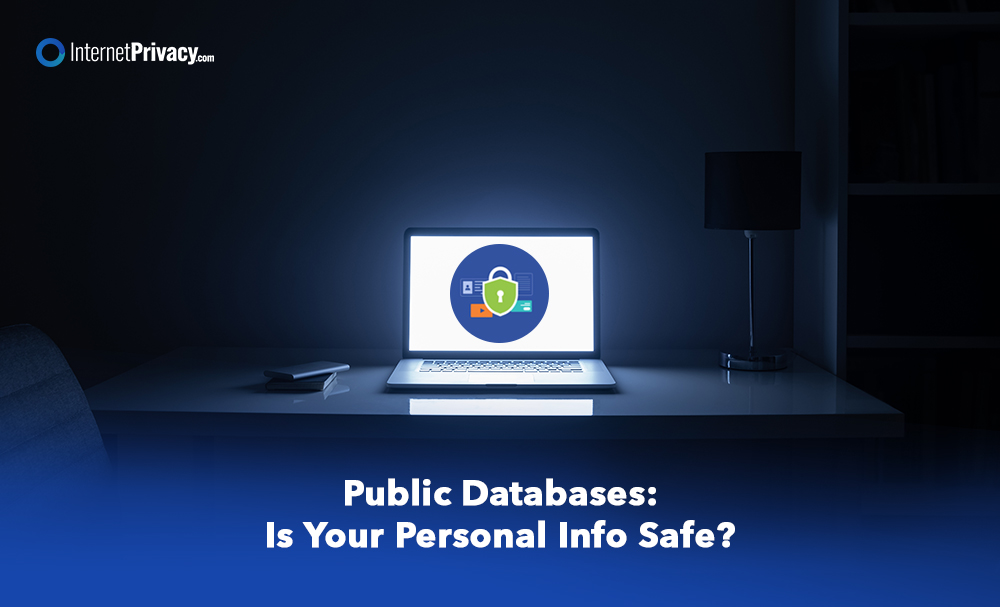Public Databases: Is Your Personal Info Safe?

Public databases are pivotal repositories for extensive data storage and management in our digital era. These databases house diverse information, ranging from personal details to various records. Understanding their workings, data collection methods, and associated risks is crucial. Identity theft and data breaches pose tangible threats in this context.
To safeguard your information, it’s essential to investigate protective measures and legal frameworks governing public databases and explore alternative solutions. Staying informed empowers you to uphold your privacy and ensure the safety of your personal data.
What Are Public Databases?
Public databases are repositories of information accessible to the general public. They contain a wide range of data on individuals, organizations, or entities.
These databases serve as valuable resources for researchers, businesses, and individuals seeking to access diverse datasets for various purposes. The scope of public databases can vary from basic contact information to detailed financial records, demographic data, and even sensitive personal details.
While these databases offer convenience and ease of access, they raise concerns about data privacy and security. Users and database administrators must uphold stringent measures to safeguard sensitive information and prevent unauthorized access or misuse.
What Type Of Information Is Stored In Public Databases?
Public databases store various types of information, including personal details, contact information, financial records, and demographic data.
Organizations often utilize these databases for multiple purposes, such as market research, targeted advertising, and customer relationship management. Personal data stored in these databases may include names, phone numbers, and email addresses. At the same time, financial records can encompass transaction histories, credit scores, and banking details—demographic details often cover gender, income levels, and geographic location.
How Do Public Databases Collect Information?
Public databases collect information through sources like government records, public filings, online registrations, and data aggregators.
Government records are crucial in providing a wide range of data to these databases, including details on individuals, businesses, property ownership, and more. Public filings, such as court documents and financial disclosures, offer insights into legal matters and economic positions. From social media accounts to e-commerce platforms, online registrations contribute data on user preferences and behaviors. Data aggregators compile information from various sources to create comprehensive profiles, often employing data mining techniques to extract valuable insights. This amalgamation of personal data raises concerns about privacy and data exposure.
What Are The Risks Of Having Your Information In Public Databases?
Exposure to public databases poses various risks, including identity theft, data breaches, and targeted advertising campaigns. Cybercriminals exploit vulnerabilities in these databases to gain unauthorized access to personal information, potentially leading to financial fraud and privacy violations. Identity theft can result in severe consequences, such as damage to credit scores and emotional distress. Data breaches compromise sensitive information, exposing individuals and organizations to identity theft, fraud, and reputational damage. Robust security measures, including encryption and access controls, are crucial for protecting against breaches. Additionally, public databases enable targeted advertising by providing detailed demographic and behavioral data, allowing marketers to tailor campaigns and increase effectiveness.
How Can You Protect Your Information From Public Databases?
To protect your information from public databases, it’s vital to adopt certain practices. Firstly, be cautious about the information you share online, minimizing personal details on social media to reduce the risk of data harvesting. Secondly, use strong passwords for your accounts, ensuring they’re unique and regularly updated to thwart unauthorized access. Lastly, stay vigilant against phishing scams, as these fraudulent attempts aim to extract sensitive data. By limiting online sharing, employing robust passwords, and being wary of phishing, you can enhance your privacy and safeguard against potential threats associated with public databases.
What Are The Laws And Regulations Surrounding Public Databases?
The legal landscape governing public databases includes regulations such as the Fair Credit Reporting Act, the General Data Protection Regulation, and the California Consumer Privacy Act.
These laws aim to safeguard personal data and ensure transparency, accountability, and fair data practices. They grant individuals rights such as access to their data, correction of inaccuracies, and opting out of certain data processing activities.
- Fair Credit Reporting Act: Regulates collection and use of consumer credit information, ensuring accuracy and confidentiality.
- General Data Protection Regulation: This regulation mandates the protection of personal data within the EU and imposes strict requirements on data handling.
- California Consumer Privacy Act: Establishes consumer rights regarding personal data and imposes obligations on businesses handling California residents’ information.
What Are The Alternatives To Public Databases?
Individuals seeking to reduce their reliance on public databases can explore alternatives such as private search engines, Virtual Private Networks (VPNs), and self-regulation of online activities.
Private search engines like DuckDuckGo and StartPage prioritize user privacy by not tracking activities or storing search history. This prevents targeted advertising and profiling based on search behavior.
VPNs, such as NordVPN and ExpressVPN, encrypt data and mask IP addresses, enhancing privacy and preventing third parties from monitoring online behavior.
Self-regulation strategies involve being mindful of sharing personal information online, adjusting privacy settings on social media, and regularly clearing browser cookies and cache to enhance online privacy and data protection.





